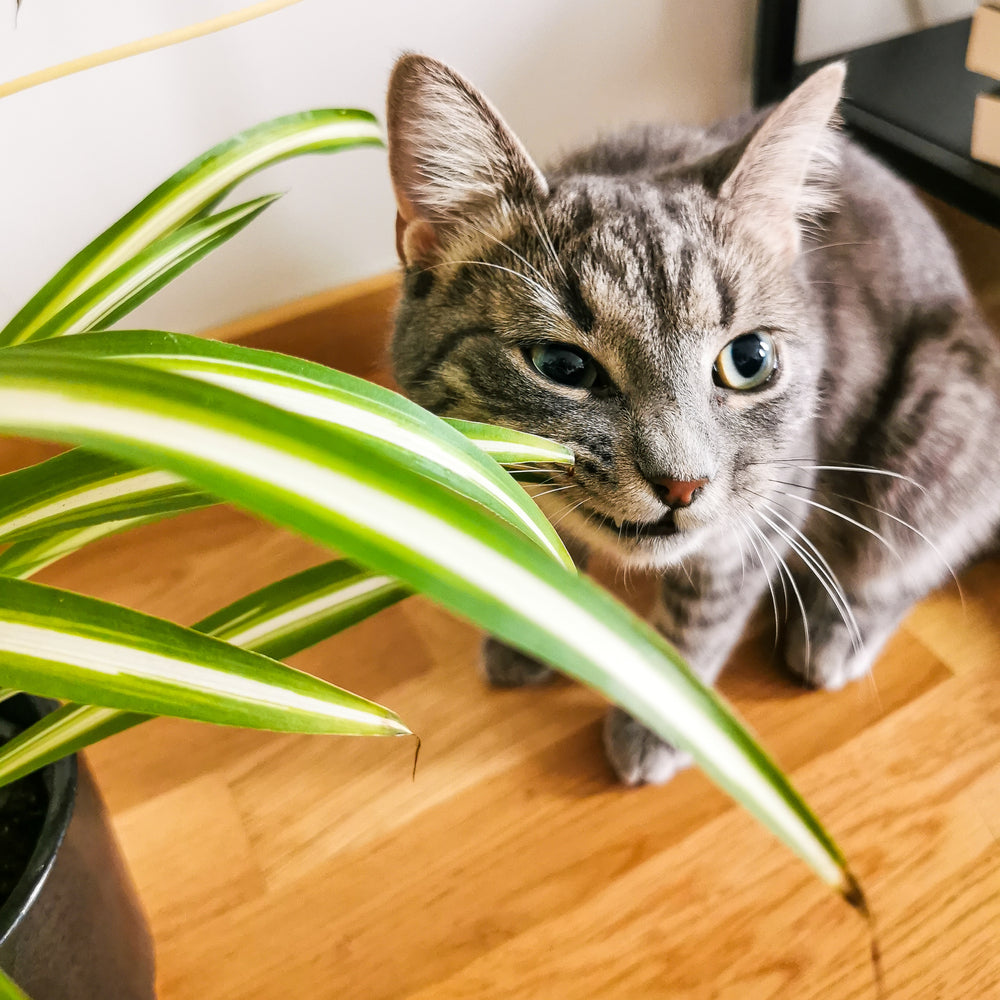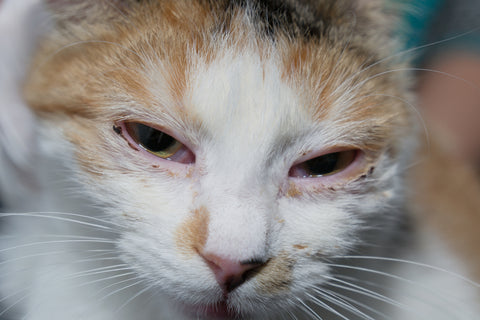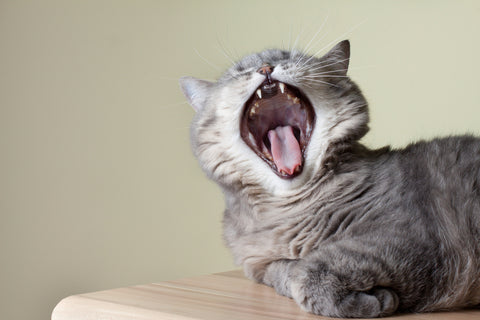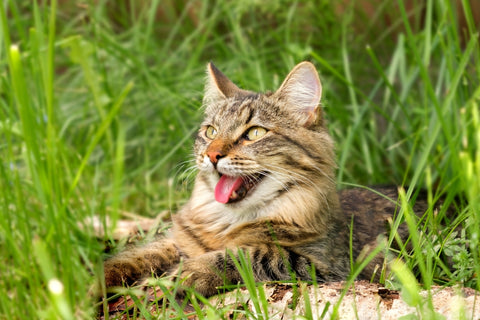
If you’re the parent of a cat, you know that keeping your beloved family member safe is paramount, especially when it comes to them coming into contact with plants in your home. The spider plant (Chlorophytum comosum), also called anthericum, ribbon plant, and spider ivy, is a common household plant. Could a spider plant pose a threat to your favorite feline? What effect could a spider plant have on your cat if they ate it? Do you need to stop your cat from eating a spider plant? Read this blog to find the answers to these questions and more.

According to the ASPCA list of toxic and non-toxic plants, spider plants are not toxic to cats. However, all cats are unique and some have sensitive digestive systems. It’s possible that your sweet kitty may still experience some negative side effects, especially if they ingest too much of a spider plant or other non-toxic plant.
Tips to Prevent Your Cat from Eating A Spider Plant
What can you do to prevent your cat from eating a spider plant? Below are a few easy things you can do to protect your cat from spider plant poisoning.
Put A Spider Plant Out of Your Cat’s Reach
While you could just get rid of your spider plant, it’s not necessary since it's non-toxic to your cat. However, to prevent any chance of even mild stomach upset, you can just make sure that your cat can’t reach the plant.

That’s the beauty of a hanging basket! A hanging basket can really emphasize the overall look of a spider plant and help you keep it out of your cat's reach. However, you’ll want to hang your basket high enough and make sure that there isn't anything nearby that your cat could climb to reach the height of the plant. You can also place your spider plant in a room where your cat isn’t allowed.
Plant An Indoor Cat Grass Garden
Try growing some indoor cat grass. Barley, rye, wheat, or oat grasses are safe for and appealing to cats. Don't let the kitty below who is making a funny face fool you!

These grasses, which often come as a seed mix, are easy to grow and you won’t have to wait long until you have your very own thriving mini garden of cat grass in the comfort of your home. Indoor cat grass placed in a lower area or in other places your cat hangs out frequently, such as a window sill, provides them with a safe alternative for nibbling and getting their “green” fix!
Houseplants That Are Toxic to Cats
While the spider plant and other plants like the common rose are non-toxic to your kitty, there are common household plants that are poisonous and should not be in homes with curious cats. The snake plant is one toxic example that you should be sure to keep out of your home.

Other toxic plants to keep away from your cat include aloe vera plants, jade plants, mother-in-law plants, peace lilies, other lilies such as Asiatic and Stargazer lilies, and the pothos plant. The ASPCA has a fully searchable online database of plants that are toxic and non-toxic to pets.
If you suspect that your cat has ingested a poisonous plant, contact your veterinarian right away for advice and find out if your cat needs to be seen. If you’re unable to reach your vet, contact the Pet Poison Helpline which is available 24 hours a day.
Conclusion
Are spider plants toxic to cats? Luckily, the answer is no. However, even non-toxic plants can sometimes cause mild upset to your kitty, so now you know some helpful tips on how to keep your kitty safe and prevent them from accessing plants in your home.
Get To Know Your Cat Better with Basepaws

Basepaws provides pet parents like you with information and resources so that your cats can live their best lives. We hope that you found this blog useful and learned about how to keep your cat safe by keeping only non-toxic plants like the spider plant in your home.
If you want to get to know your cat better—both inside and out—discover our Breed + Health Cat DNA Test and Oral Health Test for Cats, which give you a comprehensive overview of every aspect of your cat's health. Know your cat’s risk for developing common genetic diseases, and learn about how their oral health affects their overall health so that you can be proactive and support your cat’s well-being to help them live a better life, even longer!


